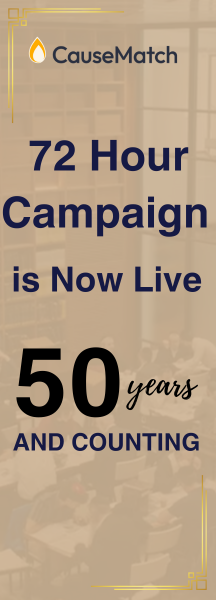Taamei Hamitzvos - Birkas Kohanim
Reasons Behind the Mitzvos: Birkas Kohanim
By Rabbi Shmuel Kraines
“Study improves the quality of the act and completes it, and a mitzvah is more beautiful when it emerges from someone who understands its significance.” (Meiri, Bava Kama 17a)
Mitzvah #378
There is a mitzvah for the Kohanim to bless the Jewish People daily with Birkas Kohanim. The congregation takes part in this mitzvah by standing before the Kohanim and calling upon them to recite the blessings (Sefer Chareidim 4:18). Birkas Kohanim is part of the sacrificial service in the Beis HaMikdash, as well as part of the prayers that we recite instead of the sacrificial service. It is essentially a call for Hashem to look upon our service in favor and bless us in accordance with our requests (Maharam Chaviv, cited in Ginas Veradim 1:13). These blessings may be regarded as the climax of our service, whose purpose is to bring glory to Hashem’s name, for they demonstrate that Hashem is willing to extend His kindness without limit and waits only for us to merit them. The Kohanim serve as the conduit for Hashem's blessings because they administer the service and because of their sanctity (Rav Menachem Recaniti).
Birkas Kohanim also bestows us blessings beyond our requests and potentially incorporates all the blessings in the world (Abarbanel). Hashem peers down at us through the “windows” between the fingers of the Kohanim, and it is a time of intense Divine favor (Rav Shimshon of Ostropoli). The Talmud Yerushalmi (Sotah 9:11) states that ever since the Beis HaMikdash was destroyed, the curse of each day is worse than that of the day before. In other words, Hashem is still angry about the sins that removed much of His Divine Presence from His world, which continue to linger amongst us, and this expresses itself in a gradually increasing curse. The Yerushalmi asks: What stands against that curse? Why does the curse not destroy us, and how do we merit much blessing and abundance despite our present distance from Hashem? The Yerushalmi answers: Every day, the curse is negated by Birkas Kohanim.
As for those living outside Eretz Yisrael who are accustomed to receiving Birkas Kohanim only during the festivals, it is not clear if and to what extent they benefit from the Birkas Kohanim of Eretz Yisrael (see Chessed LaAlafim §6, Halichos Shlomo ch. 10, Teshuvos V’Hanhagos Vol. 1 §130, and Maharsha to Chaggigah 5a). However, the Birkas Kohanim that all Jews receive during the festivals benefits them for the entire year to some degree (see Sefer Shemeinah Lachmo, cited in Yevarechecha Hashem, ch. 15).
The text of Birkas Kohanim is brief and concise, yet multifaceted and all-inclusive. We will present here one interpretation based on various sources (Midrash Rabbah; Midrash Chaseiros Veyeseiros; Nezer HaKodesh to Bereishis Rabbah 43:8; Abarbanel; Rav Hirsch):
Birkas Kohanim consists of three blessings corresponding to the three Patriarchs in whose merit we have these blessings. The first blessing is three words, the second is five words, and the third is seven words. The gradually increasing length suggests a gradual increase of potency in the blessings.
The first blessing states, "May Hashem bless you and safeguard you." Meaning, may He increase your possessions and progeny and protect them. This blessing has three words corresponding to the three Patriarchs, which intimates that we should receive these blessings in their merit even if we ourselves are undeserving.
The second blessing states, “May Hashem shine His countenance toward you and be gracious to you.” After we have been blessed with physical bounty in the first blessing, we are blessed that Hashem relates to us with graciousness. To illustrate the distinction between these two blessings, someone who merited receiving a small amount of monetary gain as a result of the first blessing might merit that whatever he receives suffices as a result of the second blessing. The second blessing has five words, corresponding to the Five Books of the Torah that were received in the merit of the Patriarchs, and this indicates that we must fulfill the Torah to merit the blessings that Hashem promised the Patriarchs. In an alternate approach, the second blessing differs from the first in that it is primarily a spiritual blessing, that Hashem should graciously endow us with the light of His Torah. It thus has five words corresponding to the Five Books of the Torah.
The third blessing states, “May Hashem turn to face you and grant you peace.” This blessing completes the text of the Birkas Kohanim and suggests a complete blessing. Hashem's primary trait is kindness, and when He turns His attention to someone, He focuses on doing only good for that person while disregarding that person's faults. The Talmud (Berachos 20b) relates that the nations complained about the favoritism indicated by this blessing, and Hashem responded that He treats the Jewish people the way they treat Him. For, He commanded them to bless Him upon eating to satiation, and they bless Him after eating as little as an olive-sized piece of bread. Since the Jewish people go beyond their call of duty to bless Hashem, He overlooks the letter of the law when blessing them. He goes so far as to bless them with shalom, peace. “Shalom” is related to the word “shalem,” complete. One who merits peace lacks nothing; one who lacks peace cannot enjoy anything he has. Hashem did not find a receptacle for His blessing other than peace. This blessing has seven words corresponding to the seven Heavens from which Hashem sends down His blessings to His beloved nation.







